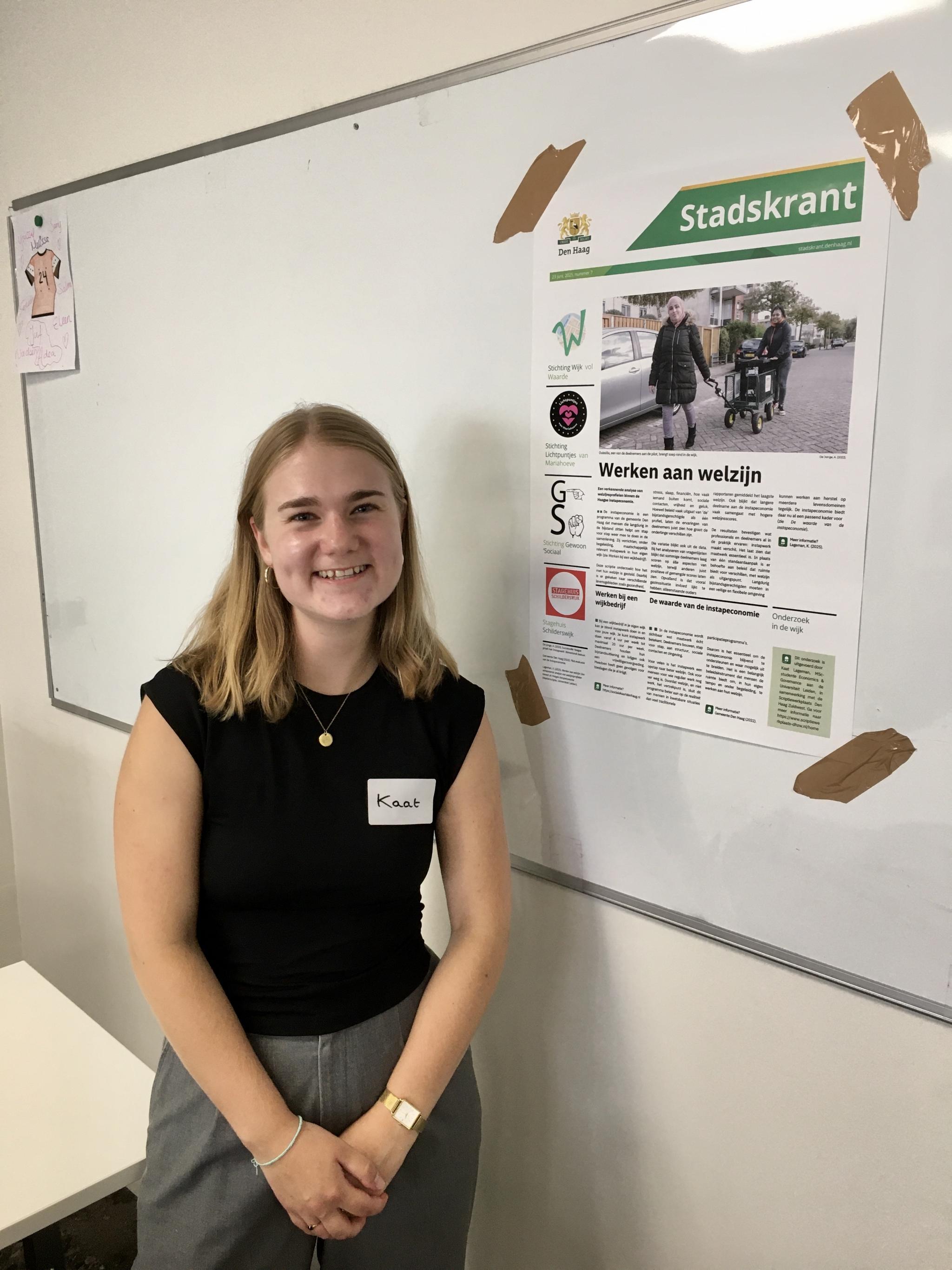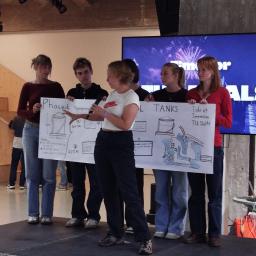Not her topic of first choice, but still graduating with a 9. After an internship at the Ministry of Foreign Affairs, where she worked on the critical raw materials portfolio, and a part-time job at consultancy firm Public Value, master's student Kaat Lageman thought she would write her thesis on the energy transition or raw materials policy.
 But through the matching system of her Public Administration: Economics and Governance programme at Leiden University, she ended up with a completely different topic: the Instapeconomie (entry-level economy). An unexpected turn of events, but it ultimately proved to be one of the most educational and meaningful experiences of her studies.
But through the matching system of her Public Administration: Economics and Governance programme at Leiden University, she ended up with a completely different topic: the Instapeconomie (entry-level economy). An unexpected turn of events, but it ultimately proved to be one of the most educational and meaningful experiences of her studies.
At the Leiden-Delft-Erasmus Thesis Hub The Hague Southwest, Lageman researched the Instapeconomie (entry-level economy), a socio-economic programme of the Municipality of The Hague. Using statistical methods, she analysed the well-being of long-term benefit recipients. She graduated with a 9 and the results of her thesis are being used in a research report written for the Municipality of The Hague.
The Instapeconomie (entry-level economy) is a programme run by the Municipality of The Hague to improve the well-being and sense of purpose in society of people who have been receiving unemployment benefits for a long time. The aim is to achieve this more effectively through small steps and accessible activities. Examples include giving language or sewing classes at the community centre, opening the door for visitors, making coffee or delivering soup to isolated neighbourhood residents. Participants receive a small monthly allowance for this, without it affecting the benefit allowance they already receive.
Lageman: ‘What I found so special about this project at the thesis hub is that you don't just do research from behind your desk, but you are actually present in the neighbourhood. It was valuable to speak to participants in person and hear their experiences with the Instapeconomie. Their enthusiasm was also hugely motivating.’

Using data from surveys, Lageman investigated which welfare profiles can be distinguished among the group of long-term benefit recipients in the municipality of The Hague. Why is this important? ‘Most reintegration programmes are based on a single profile, resulting in a uniform approach to getting people off welfare allowance. But there is actually a great deal of diversity.’
‘I saw that single parents scored lowest on average in terms of well-being. Participants who had been involved in the entry-level economy for the longest time also had the highest well-being scores. These differences deserve more attention.’
The Thesis Hub challenges students to learn outside the university as well. Lageman: ‘You really acquire different skills than you would with a regular thesis. You learn a lot, especially in the areas of communication and being proactive. You have to contact social enterprises yourself, make appointments and deal flexibly with situations in the field.’
‘In addition, you are expected to participate in the activities of the social enterprises. For example, I helped out on a number of Saturdays in a community garden in the Schilderswijk neighbourhood and was allowed to cook once at the Tafel vol Waarde (Table full of Value) in Vrederust. It is precisely by participating that you talk to people in an informal way and get to know the target group personally. That really adds something to your research.’
This approach not only yields valuable research data, but also provides insight into how policy works in practice. Lageman: ‘What made this research so valuable to me is that you are working on a social issue that matters. You can immediately see what your research is about and who it can impact.’
‘Through interacting with this group of residents in The Hague and hearing their diverse stories, I gained insight into how policy plays out in everyday life. This has convinced me that long-term social benefit recipients need space to work on their well-being in a safe and flexible environment, in multiple areas of life simultaneously.’
Would you like to know more about the Thesis Lab The Hague Southwest of Leiden-Delft-Erasmus Universities? Do you have cases for the students or would you like to graduate there?

